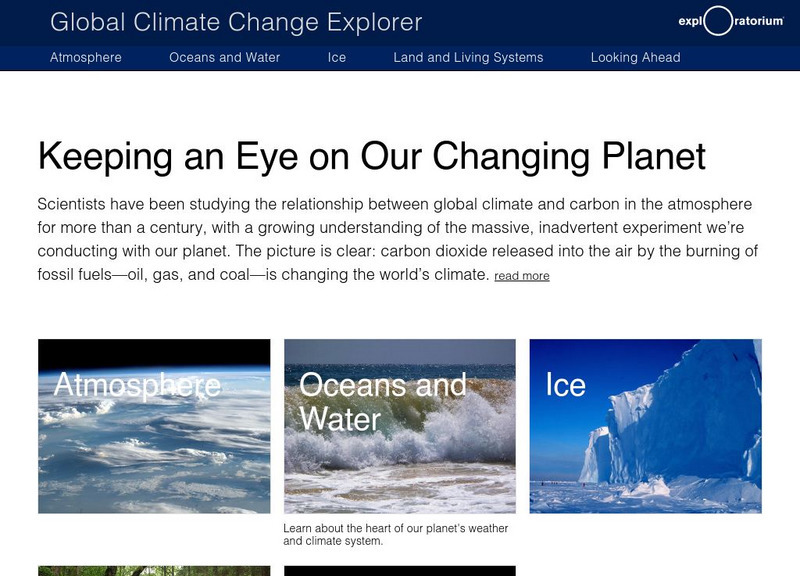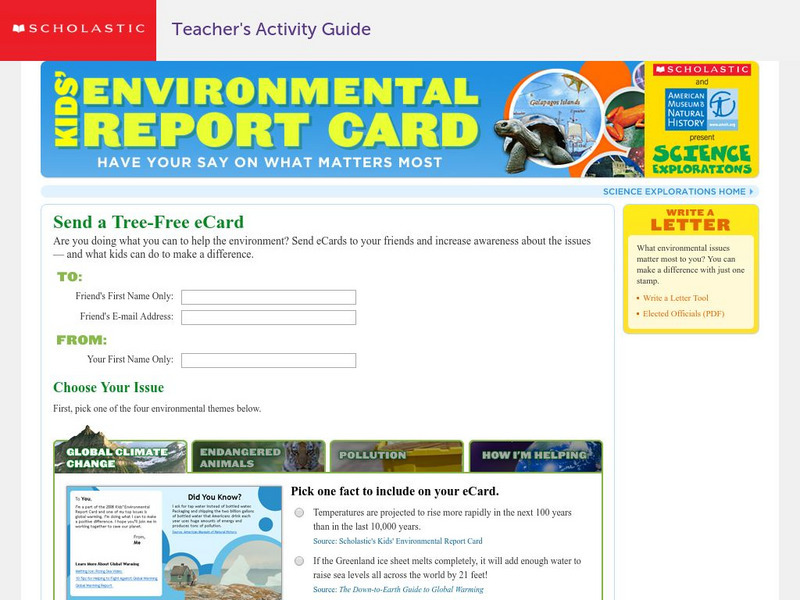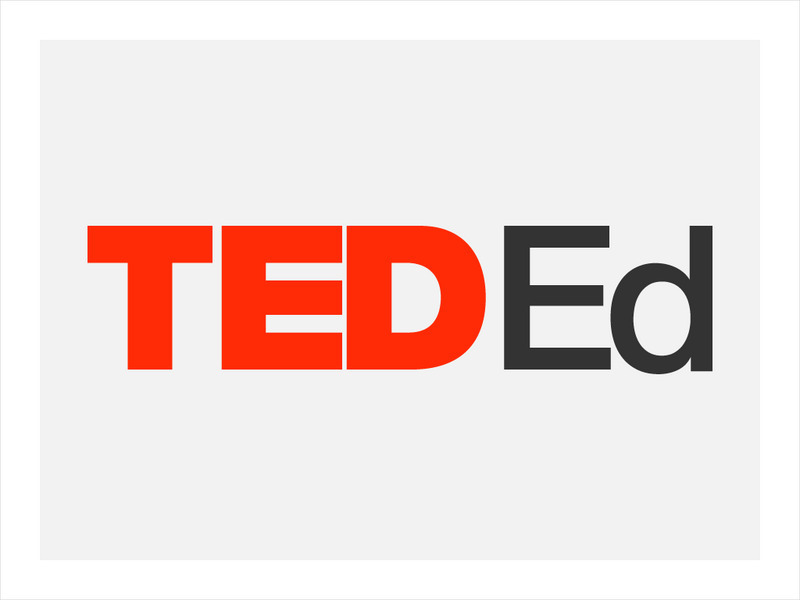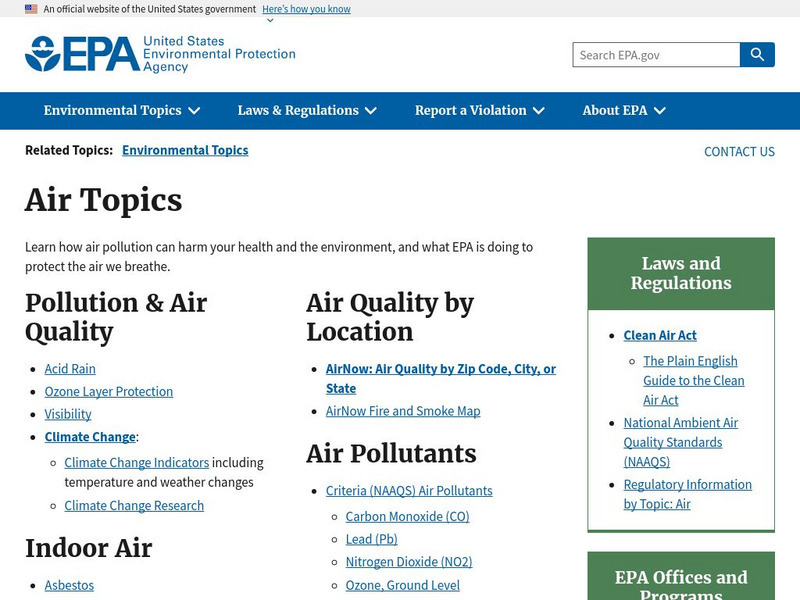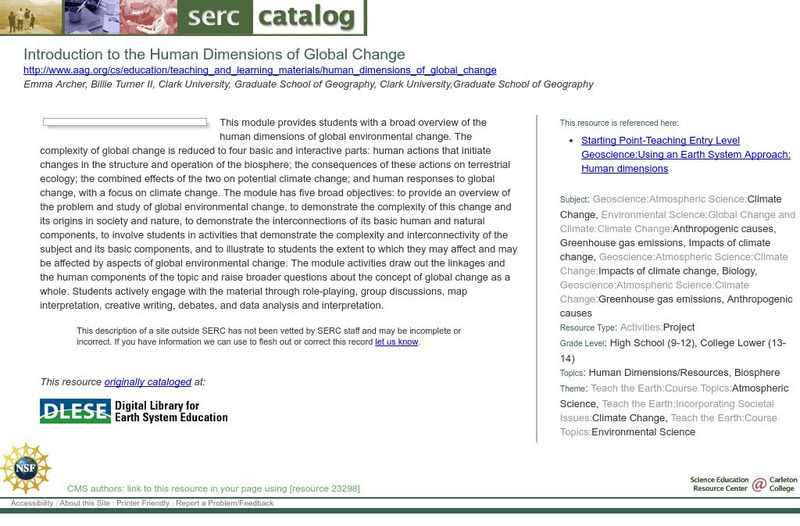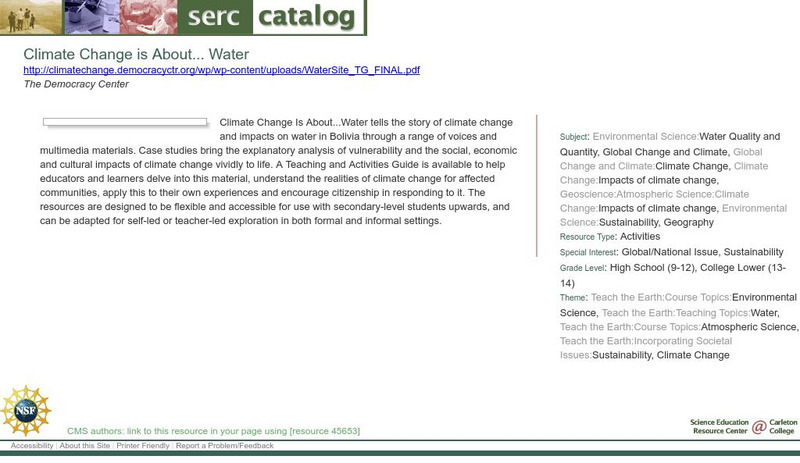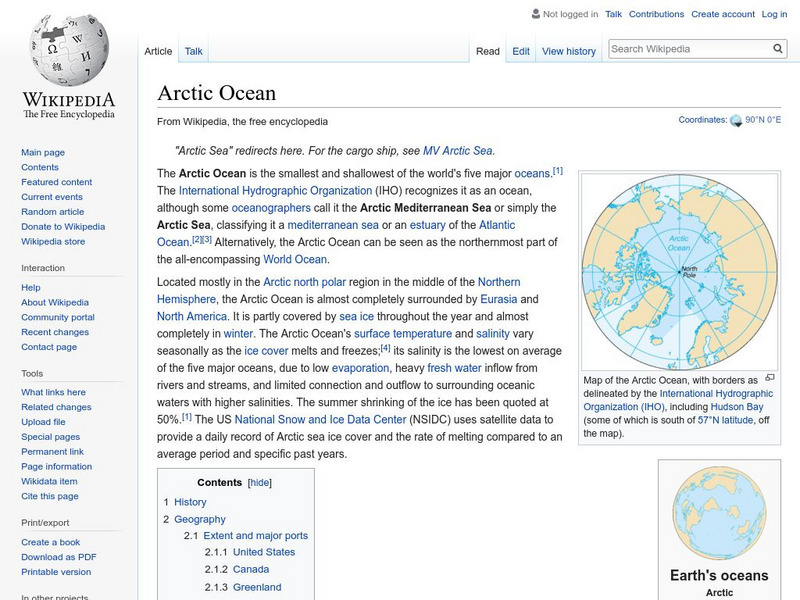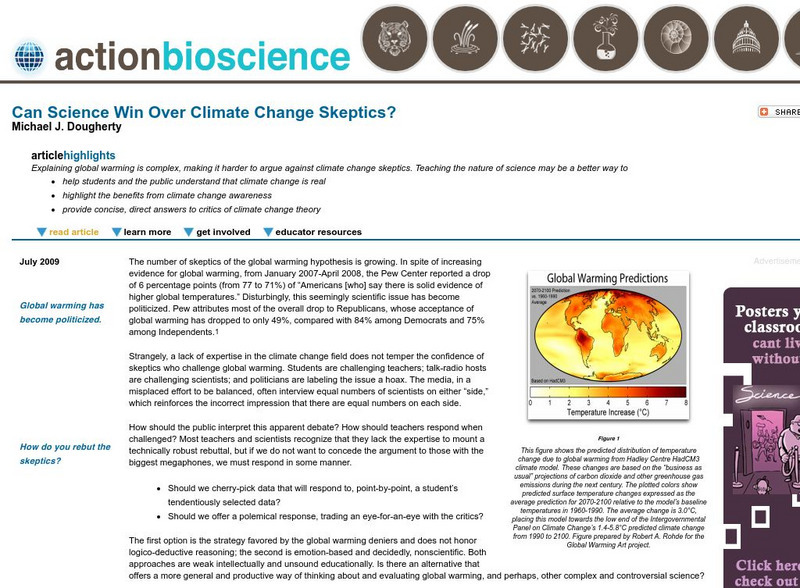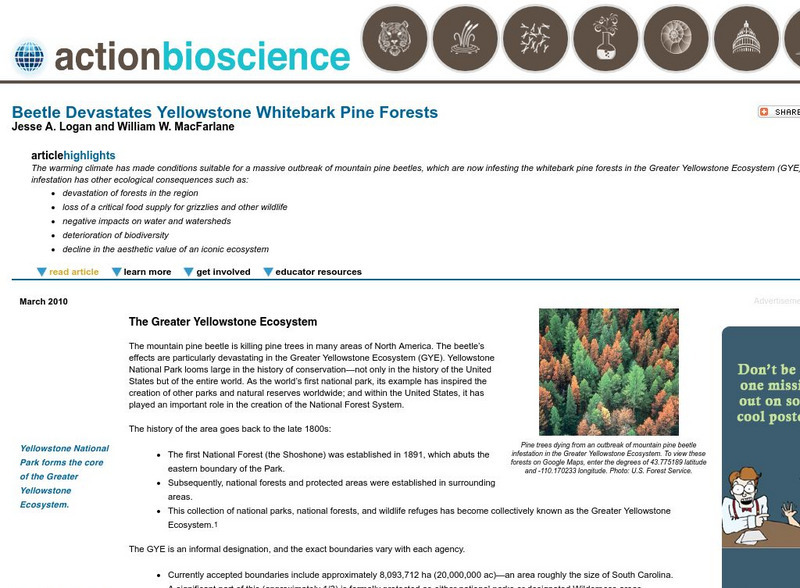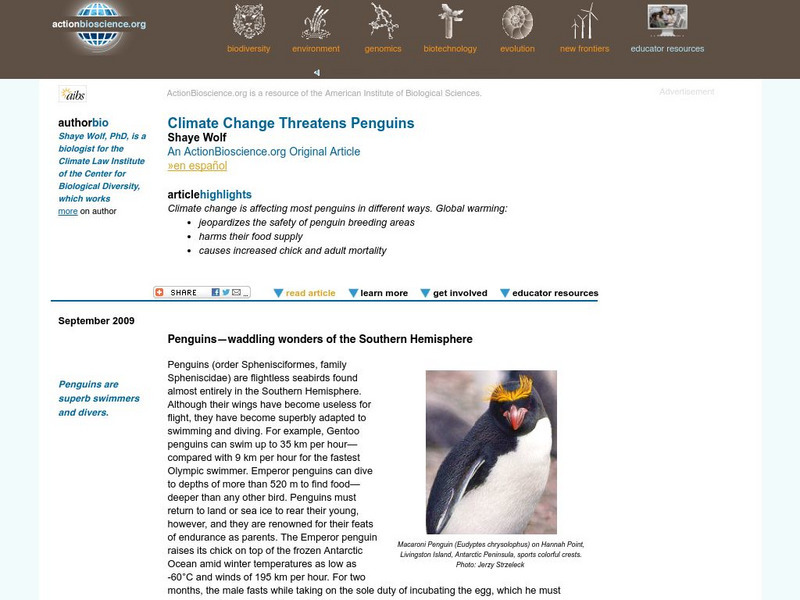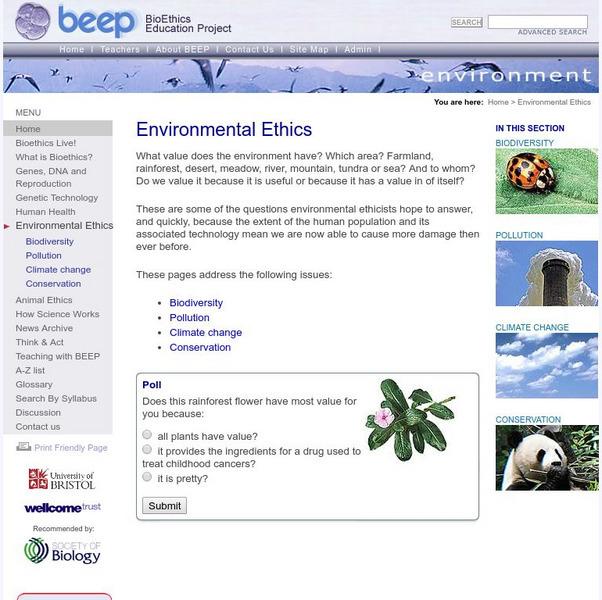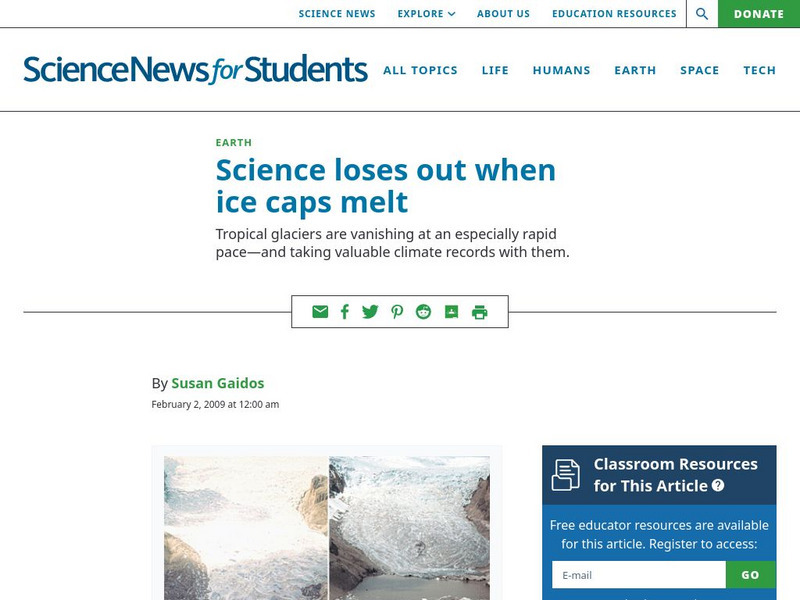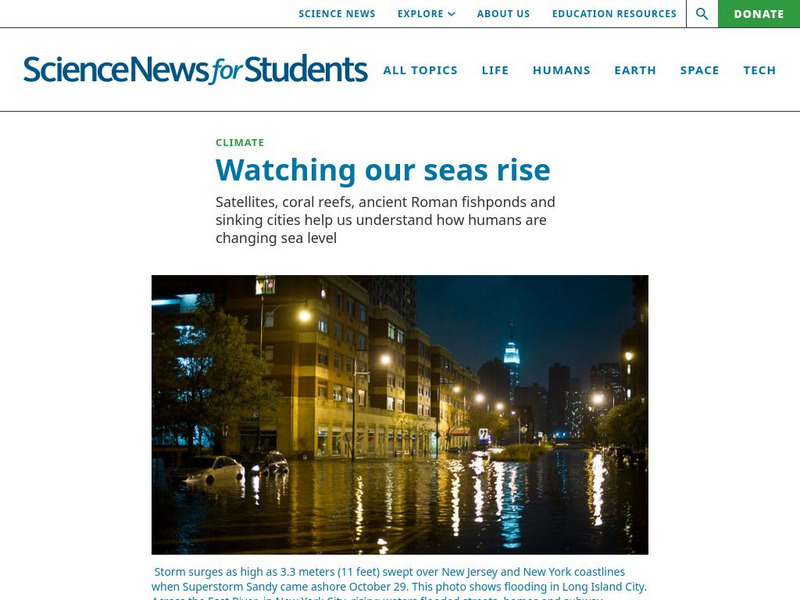Exploratorium
Exploratorium: Ice Stories: Dispatches From Polar Scientists: Climate Change
An article briefly addressing climate change and its effects in the Arctic region.
Exploratorium
Exploratorium: Global Climate Change: Research Explorer
Explore scientific data relating to the atmosphere, oceans, areas covered by ice, and living organisms in all these domains. Interpret past and present climate data to predict future climate change and its possible effects.
Scholastic
Scholastic: Science Explorations: Kids' Environment Report Card
Cast your vote on the important environmental issues. Associated with each issue, there are at least three links to sites which can further your understanding of the issue. To encourage others to respect the environment, you can also...
TED Talks
Ted: Ted Ed: Rachel Pike: The Science Behind a Climate Headline
In this brief video tutorial, atmospheric chemist Rachel Pike provides a glimpse of some of the methods that scientists are using today to study climate change and Earth's atmosphere. [4:14]
PBS
Pbs Learning Media: Documenting Change
In this video segment from New York Voices, botanists study plants to inform agriculture and climate change.
US Environmental Protection Agency
Epa: Learn the Issues: Air
Air pollution occurs both inside and outside and is dangerous to individuals as well as to the planet. The Environmental Protection Agency oversees laws and regulations related to air quality and has gathered a wealth of information to...
Science Education Resource Center at Carleton College
Serc: Inquiry Into High Resolution Ice Core and Marine Sediment Records
Activity in which questions are provided relating to interpreting paleoclimate data such as characteristics that make sites favorable for paleoclimate records, locating sites using a map, finding patterns and correlations in the data,...
Science Education Resource Center at Carleton College
Serc: Tracking Global Climate Change: Microfossil Record of Planetary Heat Pump
This lesson plan integrates physics, biology, and geology to understand planetary processes that contribute to climate change through time. It includes an activity that demonstrates heat transfer and it uses figures and charts to...
Science Education Resource Center at Carleton College
Serc: Introduction to the Human Dimensions of Global Change
Learning module introduces students to the human dimensions of global environmental change: human actions that initiate changes in the structure and operation of the biosphere; the consequences of these actions on terrestrial ecology;...
Science Education Resource Center at Carleton College
Serc: Climate Change Is About Water
Through a range of voices and multimedia materials, discover the story of climate change and its impacts on water in Bolivia. Case studies bring the explanatory analysis of vulnerability and the social, economic and cultural impacts of...
Wikimedia
Wikipedia: Arctic Ocean
A wealth of facts is presented in this article on the Arctic Ocean. Content covered includes the area, natural resources, climate, terrain and much more.
American Institute of Biological Sciences
Action Bioscience: Can Science Win Over Climate Change Skeptics?
With many skeptical over the concept of climate change this article stresses that the best means to win them over is with scientific proof.
American Institute of Biological Sciences
Action Bioscience: Beetle Devastates Yellowstone White Bark Pine Forests
This article highlights the infestation of mountain pine beetles in Yellowstone White Bark Pine Forests. Find out the cause and effect of such an outbreak and explore supporting resources.
American Institute of Biological Sciences
Action Bioscience: Climate Change Threatens Penguins
More than half of the species of penguins are feeling the affects of global warming. Understand the impact of this climate change while reading this article and exploring the resources provided. Teacher resources available for students...
American Institute of Biological Sciences
Action Bioscience: Polar Bears and Climate Change
The polar bear population is at risk as a result of the changing climate. Read about the risks and check out a few supplemental resources provided by ActionBioscience.org.
American Institute of Biological Sciences
Action Bioscience: Urban Heat Islands: Hotter Cities
Explanation of three different types of heat islands and what happens to make cities warmer than some of their surrounding areas.
Other
Bio Ethics Education Project (Beep): Environmental Ethics
The tutorial examines environmental ethics. Topics investigated are biodiversity, pollution, climate change, and conservation. The resource consists of articles, a video, and activities.
Weather Wiz Kids
Weather Wiz Kids: Climate
This page gives a complete explanation of climate. Learn the factors that affect the climate.
PBS
Pbs Learning Media: Arctic Ice Extent, 1999 2016
Scientists study sea ice extent closely because it influences global climate. Follow the decline in Arctic sea ice in this animation adapted from NASA showing the yearly maximum and minimum sea ice extents from 1999 to 2016. Resources...
PBS
Pbs Learning Media: Arctic Ice Reaches 2015 Minimum Extent
NASA's Scientific Visualization Studio uses data from several sources to track seasonal changes in Arctic sea ice and land cover over time. Scientists study sea ice because it influences global climate. Watch the following visualization...
University of Wisconsin
Uw: Probabilities, Uncertainties and Units Used to Quantify Climate Change
This resource engages learners in using scientific data to analyze a 150-year dataset from Lake Mendota in Madison Wisconsin reflecting seasonal ice cover.
Smithsonian Institution
Smithsonian Education: Prehistoric Climate Change and Why It Matters
Through interactive and engaging learning site, students become the scientists and learn how to determine earth's temporal past.
Society for Science and the Public
Science News for Students: Science Loses Out When Ice Caps Melt
Discusses the melting of mountain ice caps from climate change, and how this represents the loss of valuable historical data that disappears as the ice layers melt away. [February 2, 2009]
Society for Science and the Public
Science News for Students: Watching Our Seas Rise
Ocean levels are increasing around the world. Find out why this type of climate change has scientists concerned.



